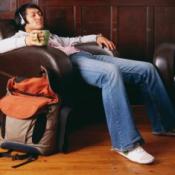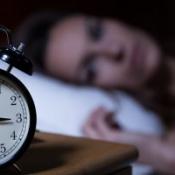 Older adults who feel a sense of purpose in life during the day may sleep better at night, according to a paper published in the journal Sleep Science and Practice.
Older adults who feel a sense of purpose in life during the day may sleep better at night, according to a paper published in the journal Sleep Science and Practice.
According to the American Sleep Association, sleep difficulties are common, with 50-70 million adults experiencing symptoms of a sleep disorder. More than a third of adults report periodic sleep deprivation. One in three adults experiences short-term insomnia, and about 10% have chronic insomnia.
Sense of Purpose: Key to a Good Night’s Sleep?
The study assessed 825 seniors ages 60-100, with an average age of 79. The majority of participants were African-American. Previous research has shown higher rates of sleep difficulties among seniors and African-Americans. Seventy-seven percent of participants were women. None of the participants had dementia.
The study measured participants’ sense of purpose by using a 10-item assessment of psychological well-being. Participants also completed a 32-item inventory that assessed sleep quality and measured symptoms of various sleep issues, including sleep apnea and restless leg syndrome.
People who felt their lives were meaningful were 63% less likely to have sleep apnea and 52% less likely to experience restless leg syndrome. They also reported moderately higher sleep quality.
Ways to Improve Sleep Quality
The study’s authors say their research suggests mindfulness training might improve sleep quality. Mindfulness helps people acknowledge the present moment without judgment or anxiety, and it has the potential to help people who struggle to find a sense of purpose.
Previous research has shown therapy can improve sleep quality. A 2016 study found cognitive behavioral therapy (CBT) can treat insomnia in seniors. In some seniors, sleep difficulties may warn of dementia. A recent study linked changes in sleeping patterns to an increase in dementia risk. Another study found nighttime sleeplessness and daytime fatigue correlate with age-related brain atrophy.
The National Sleep Foundation recommends 7-8 hours of sleep each night for adults older than 65.
References:
- National Sleep Foundation recommends new sleep times. (n.d.). Retrieved from https://sleepfoundation.org/press-release/national-sleep-foundation-recommends-new-sleep-times/page/0/1
- Paul, M. (2017, July 10). A purpose in life by day results in better sleep at night. Northwestern Now. Retrieved from https://news.northwestern.edu/stories/2017/july/purpose-in-life-results-better-sleep/
- Sleep and sleep disorder statistics. (n.d.). American Sleep Association. Retrieved from https://www.sleepassociation.org/sleep/sleep-statistics/
- Turner, A. D., Smith, C. E., & Ong, J. C. (2017). Is purpose in life associated with less sleep disturbance in older adults? Sleep Science and Practice, 1(1). doi:10.1186/s41606-017-0015-6
© Copyright 2017 GoodTherapy.org. All rights reserved.
The preceding article was solely written by the author named above. Any views and opinions expressed are not necessarily shared by GoodTherapy.org. Questions or concerns about the preceding article can be directed to the author or posted as a comment below.

 Better Brain Chemistry: Sleep, Move, and Breathe to Calm
Better Brain Chemistry: Sleep, Move, and Breathe to Calm Can’t Sleep? How to Put Insomnia to Bed
Can’t Sleep? How to Put Insomnia to Bed From the Sleep Queen: Simple Tips and Yoga to Help You Sleep
From the Sleep Queen: Simple Tips and Yoga to Help You Sleep